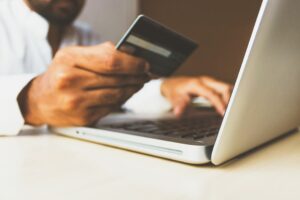Los Angeles – The government has been adamant for weeks: FBI investigators need to unlock an encrypted iPhone used by one of the San Bernardino attackers, and Apple Inc. was the only one that could do it.
In a stunning reversal on Monday, federal prosecutors asked a judge to halt a much-anticipated hearing on their efforts to force Apple to unlock the phone. The FBI may have found another way, and Apple’s cooperation may no longer be needed, according to court papers filed late Monday, less than 24 hours before Tuesday’s hearing.
“An outside party” came forward over the weekend and showed the FBI a possible method to access the data on Syed Rizwan Farook’s encrypted phone, according to the filing.
“Testing is required to determine whether it is a viable method that will not compromise data on Farook’s iPhone,” the filing said. “If the method is viable, it should eliminate the need for the assistance from Apple.”
If it’s viable, that also means the government has significantly undermined its arguments against Apple, said Kristen Eichensehr, a visiting law professor at the University of California, Los Angeles.
“If they found another way into the phone, that doesn’t just weaken their case. It means they can’t satisfy the legal standard to sustain the court’s order,” said Eichensehr, referring to Magistrate Judge Sheri Pym’s Feb. 16 ruling compelling Apple to create software that would disable security features on the phone.
Pym granted the government’s request to postpone Tuesday’s arguments in the case and stayed her previous order. She ordered the government to file a status report by April 5.
The development raised more questions than it answered. It’s unclear who is helping the FBI with the phone and why it took so long for a possible solution to be identified.
One thing seems clear – that the government likely would not have disclosed it had found another possible way to unlock the phone unless it was almost certain the method would work, said Robert Cattanach, a former U.S. Department of Justice attorney who handles cyber-security cases for the Dorsey & Whitney law firm.
He said the disclosure alone weakens the government’s case by introducing doubt that it could only access the phone with Apple’s help. “They’ve created ambiguity in a place where they’ve previously said there is none,” he said.
In a conference call with reporters, Apple attorneys said it’s premature to declare victory in the case because authorities could come back in a few weeks and insist they still need the company’s help. The attorneys spoke under an Apple policy that wouldn’t allow them to be quoted by name.
The company hopes the government will tell Apple about whatever method it uses to access the phone’s encrypted files. But the attorneys said it may be up to the FBI to decide whether to share the information.
Lawmakers, civil rights advocates and other tech companies have criticized the FBI for not doing more to try to crack the iPhone itself before seeking to force Apple’s hand.
“To me, it suggests that either the FBI doesn’t understand the technology or they weren’t giving us the whole truth when they said there is no other possible way” of examining the phone without Apple’s help, said Alex Abdo, staff attorney for the American Civil Liberties Union. “Both of those are scary to me.”
The ACLU has filed a court brief supporting Apple’s position. – AP/UNB




